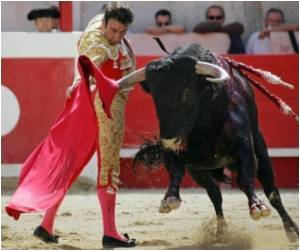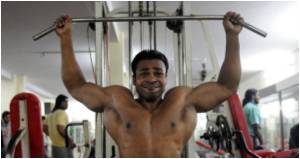
Catalonia's regional parliament on Wednesday voted to ban bullfighting from January 1, 2012.
It would thus become the first region in mainland Spain to outlaw the centuries-old tradition, which has inspired artists from Goya to Picasso.
But Alvarez said the ban was unconstitutional: he insisted that the wealthy northeastern region did not have the right to abolish bullfights, but only to regulate them.
The lobby group would go to court in a bid to reverse the Catalan parliament's decision in court, he added.
"We will use all the tools available to us by the law because not everything is lost," Mesa del Toro spokesman Eduardo Martin-Penato told radio Onda Cero.
Advertisement
PP leader Mariano Rajoy said his party would press Spain's national parliament to declare bullfighting a "cultural heritage" to protect the practice from being banned.
Advertisement
Prime Minister Jose Luis Rodriguez Zapatero's socialist government has not yet indicated if it would support the PP's move although several cabinet ministers have said they disagree with the Catalan parliament's position.
Culture Minister Angeles Gonzalez-Sinde said that bullfighting "falls within the framework of art" in an interview with radio Cadena Ser Thursday.
"Of course bullfighting is culture," she added.
Catalonia, which has its own language and a strong nationalist movement, has followed the lead of the Canary Islands, which outlawed bullfighting in 1991.
Catalonia's parliament voted to end bullfighting after animal rights activists collected 180,000 signatures for a petition calling for the assembly to decide on the ban.
Animal rights groups say they plan similar initiatives against bullfighting in other regions such as the Balearic Islands in the Mediterranean, Asturias in the north and Madrid.
In an editorial, the centre-right La Razon daily said measures needed to be taken to protect bullfighting from those who wanted to see the practice disappear from Spain.
And the conservative ABC daily reported that mobile phone text messages calling for a boycott of Catalan products in protest against the "anti-Spanish" decision to ban bullfights had started to circulate in Spain.
The ban vote came one month after Spain's Constitutional Court struck down several articles of Catalonia's "statute of autonomy", which expanded the already significant regional self-rule powers.
More than one million people marched in protest at the ruling in Barcelona on July 10.
Many bullfighting fans see the ban as a form of "revenge" on the part of Catalan nationalists.
All 21 lawmakers from the Catalan separatist party ERC voted in favour of the ban as did 32 of the 48 lawmakers from the Catalan nationalist CiU party.
Source-AFP









